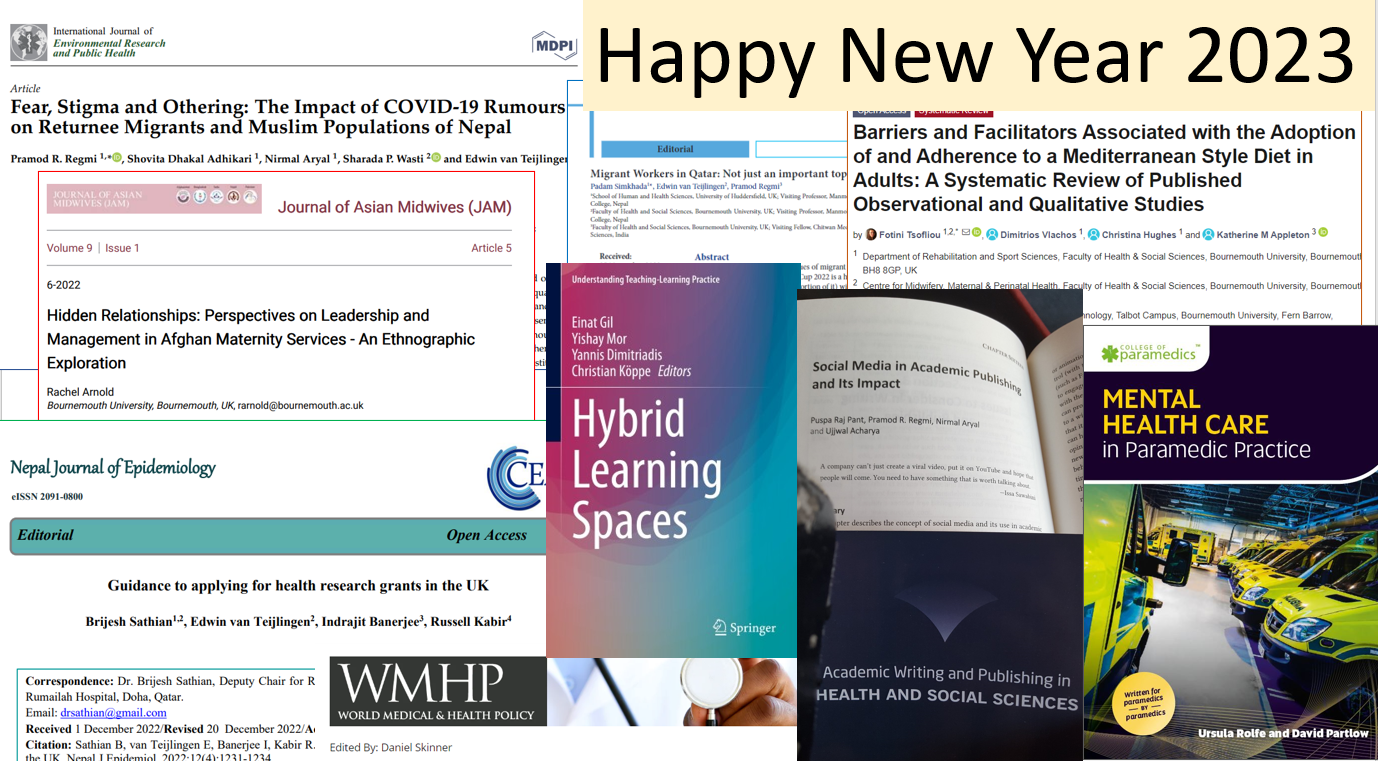Hi all, Parliament are in recess but there is plenty going on. We start with last week’s reshuffle and research, but there are strong hints about new plans for access and participation
Mini Reshuffle
Last week there was a mini reshuffle of the parliamentarians holding Government. The appointments effectively draw his loyal staff ever closer and bolster up support for Boris personally within the Cabinet.
- Michael Ellis MP has been made Minister for the Cabinet Office on top of his current role as Paymaster General and will be attend cabinet. The role was previously held by Steve Barclay. Ellis has become more visible lately as the minister most often sent up to the despatch box to answer urgent questions around ‘partygate’.
- Stuart Andrew MP becomes Minister for Housing, leaving his role as Deputy Chief Whip and replacing Christopher Pincher at the Department for Levelling Up, Housing and Communities. As the Mirror points out, this makes him the eleventh housing minister in almost as many years, narrowly overtaking the ‘curse’ of the Universities Minister.
- James Cleverly MP becomes Minister for Europe, leaving his role as Minister for Middle East, North Africa and North America and replacing Chris Heaton-Harris who has been made Chief Whip.
- Heather Wheeler MP becomes Parliamentary Secretary in the Cabinet Office, a ministerial role previously held by Julia Lopez, in addition to her current role as Assistant Government Whip.
- Jacob Rees-Mogg MP becomes Minister for Brexit Opportunities and Government Efficiency and will attend cabinet. He leaves his role as Leader of the House of Commons. It also looks as though he might take on the former responsibilities of Minister for Efficiency and Transformation – the position held by Lord Agnew until last month when he resigned over the Government writing off furlough fraud.
- Mark Spencer MP becomes Leader of the House of Commons (and Lord President of the Privy Council) and will attend cabinet. He leaves his role as Government Chief Whip to replace Rees-Mogg.
- Chris Heaton-Harris MP becomes Chief Whip and will attend cabinet. He leaves his role as Minister for Europe (FCDO), a role he held for roughly 51 days, to replace Spencer.
In addition, last week these appointments were made:
- Steve Barclay MP, the Chancellor of the Duchy of Lancaster, took up the post of the Prime Minister’s Chief of Staff following the resignation of Dan Rosenfield.
- Andrew Griffith MPwas appointed Director of the Number 10 Policy Unit, having already served as Johnson’s PPS for some time, following the resignation of Munira Mirza.
- Guto Harriwas appointed Director of Communications following the resignation of Jack Doyle. He previously worked with Johnson during his time as London Mayor. His appointment sparked controversy.
Research
Research Spend: Andy Westwood reminds us of some key research spend points in Research Professional’s Sunday Reading Balancing the Books: The R&D mission
- to increase public spending outside the greater south-east (in this case, the ‘golden triangle’) by a third over the spending review period and by 40 per cent by 2030 is to be welcomed. So too is the commitment to spending 55 per cent outside the greater south-east by 2024-25…As commentators…have pointed out, this is not much of a departure from existing spending and should be easily achieved. Richard Jones… has also suggested that this spending is likely to be more at the applied end of R&D, and the stated expectation of a “2:1 private sector match” more or less confirms this. It should also remind us that this R&D mission has an explicit purpose of boosting productivity, pay and economic success rather than just dividing up the spending review’s spoils.
- But that spending context is important—as are the government’s longer-term targets of spending 2.4 per cent (and eventually more) of GDP on R&D by the middle of the decade. The spending review allocations offer real headroom for growth and much of this spending remains unprescribed. Of the £20 billion promised across government by 2024-25, only £5.9bn will be spent on the “core research budget”.
- So it’s less a fight over research councils and quality-related funding and more about other R&D spending, such as that distributed elsewhere in BEIS and by other government departments, including health and defence.
Horizon Europe: the prospect of the UK joining Horizon Europe appears to be slipping away. Last week in the Commons Science and Technology Select Committee Science Minister, George Freeman, stated:, It’s clear to me we can’t go into a financial year with ongoing uncertainty. So, internally, our thinking is that we need to be ready in the new financial year to start to release some of the funding that we’ve put aside for Horizon into programmes so that the science community isn’t left sitting on the bench, as it were, rather than on the pitch. What I’m keen to do is make sure that those could seamlessly—like a motorway’s slipway—segue back into Horizon association, were that to materialise after the French election [in April].
Research Professional suggest that 31 March will be make or break decision time. Research Professional report: Freeman spoke to the Financial Times about the UK’s ‘Plan B’, describing a £6bn global science fund to run over three years. The science minister is quoted as wanting a “coherent and ambitious plan for international science…based on the elements of Horizon that researchers find most valuable: global fellowships, strong industrial challenge funding [and] innovation missions around tomorrow’s technologies”. He added: “Outside Horizon, we have the freedom to be more global.” … The UK is not alone in feeling excluded from Horizon, with Switzerland similarly feeling its membership is being held up over debates around the wider political relations between the country and the EU…The FT story is not so much news as a periodic reminder that making a decision on association seems as difficult as ever.
Here’s the latest from the European Affairs Committee on Horizon Europe.
The ongoing campaigning to remain part of Horizon Europe has been a regular news feature this week. Wonkhe: Organisations across Europe are calling for science to be put above politics as the UK and Switzerland’s association with Horizon Europe remains in limbo. Universities UK has partnered with the Royal Society, Wellcome, EPFL, ETH Zurich, and the ETH Board to launch the Stick to Science campaign, which argues that the UK and Switzerland’s inclusion in the scheme will bring an estimated €18billion in additional funding, and are inviting signatures for the initiative. The PIE News and the Financial Times cover the story.
UKRI Chair: Business Secretary, Kwasi Kwarteng, was reported as vetoing the appointment of Jonathan Michie for UKRI’s Executive Chair role for party political reasons. The Guardian also run the story.
Global Talent: Wonkhe – The government’s new Global Talent website has launched with the aim of attracting research experts to come and innovate in Britain. The site, which is a collaboration between UKRI and several government departments, will provide information on working in and with UK universities, innovation, and business.
Destination Australia: The Russell Group call for closer research and mobility ties with Australia. In a joint letter sent to the Australian and British foreign and trade ministers, the Chairs of the Group of Eight (Go8) and the Russell Group, their countries’ key representative bodies for world-class research-intensive universities, said they would establish a new committee to look at ways to increase two-way research collaboration and explore how this could be used to boost trade and investment and support economic growth.
Parliamentary Questions:
France took up the rotating six-month Presidency of the Council of the European Union in January with the motto Recovery, strength and a sense of belonging. The agreed priorities for the next 18 months are:
- To protect the citizens and freedoms by focusing on respecting and protecting European values such as democracy, rule of law, gender equality, and on strengthening the Schengen area and the EU’s common asylum and migration policy
- To promote a new growth and investment model for Europe, based on sustainable green growth and strengthening the EU’s industrial and digital sovereignty
- To build a greener and more socially equitable Europe that better protects the health of Europeans
- A global Europe that promotes multilateralism and renewed international partnerships and adopts a shared vision among the 27 member states on strategic threats
Pages 4-5 of this briefing indicate more on the above themes and is an interesting short read. Also in the document is analysis of what the French premiership means. While the above listed items are the EU priorities France intends a particular focus on climate change, digital transformation, and security. The priorities have connotations for both research priorities and budgets as well as economic competition between the UK and EU.
Skills Bill – OfS’ proposed new powers
Proposed amendments to the Skills and Post-16 Education Bill tabled by the Government aims to change the way the Office for Students (OfS) publicises investigations with HE providers and protect it from defamation claims. The OfS will be able to state publicly if it intends to investigate, or already is investigating, a provider or individual and will be protected from defamation claims. Where it publicises an upcoming investigation it must also publish the findings, even if no decision is reached or no further action is taken. The provisions would allow the OfS to publish notices, decisions and reports given or made in the performance of its functions, while considering:
- The interests of HE students, potential applicants, alumni, and HE providers
- The need for excluding from publication any information that “would or might, in the opinion of the OfS, seriously and prejudicially affect the interests of that body or individual”
- The public interest
Publications relating to a decision to conduct an investigation are to be protected from defamation claims if they include information on:
- A statement of the OfS’ decision to conduct the investigation,
- A summary of the matter being, or to be, investigated, and
- A reference to the identity of any higher education provider or other body or individual whose activities are being, or to be, investigated.
Wonkhe: …new clause 67C. In publishing details of a decision to conduct an investigation, summarising the matter that is being investigated, and naming the provider (or other body) under investigation the OfS is protected from defamation claims. This doesn’t apply to other information that the OfS may publish, and – wonderfully – it doesn’t apply if the publication “is shown to have been made with malice”.
The clause is controversial as this sort of disclosure risks damaging the reputation of HE providers even when the OfS decides not to take further action or implement sanctions. It also came up in the context of the consultation on student protection directions in 2020. In that context, there were concerns about the impact on an institution that was in difficulty if the OfS published their market exit plans. In that context the guidance now says that they will consider the public interest when considering publication.
The DfE has published an updated assessment of how the Skills Bill interacts with human rights legislation, to account for the new provisions. There are also questions over how the Skills Bill will interact with the Freedom of Speech Bill.
Here’s the short Wonkhe blog on the topic.
In other OfS news last week Susan Lapworth was appointed as the OfS Interim Chief Executive from 1 May until the end of 2022. This covers the recruitment period for a permanent OfS chief executive. Susan takes over from Nicola Dandridge’s planned departure as her tenure in the chief role ended.
Lord Wharton, chair of the OfS, said: This is an excellent appointment to see the OfS through an important phase of our work, including the delivery of our reforms to quality and student outcomes. Susan has worked closely with the board since the OfS was established and is perfectly placed to lead the team through this period. Her experience and expertise has been invaluable to the OfS, and I am looking forward to working closely with her in this new role.
Access & Participation
The OfS has shared more than a hint of what is to come under the new Director for Fair Access and Participation.
In a presentation, there was the following advice:
- We strongly encourage you to vary your plan to take account of the priorities outlined by the Director for Fair Accessand Participation.
- We will publish advice on how to do this in spring 2022.
- The advice will include information on the areas that should be covered in variations. This is likely to cover:
- strategic partnerships with schools to raise attainment
- improving the quality of provision for underrepresented students
- developing non-traditional pathways and modes of study
- the production of two-page access and participation plan executive summaries using an optional template.
We even get a mention in the speech!
- But we are expecting providers to pull their weight on pre-16 attainment, a challenge which affects us all.
- We will be generous in our expectations of the work providers undertake in this area.
- It may be expanding evidence-led, provenly-successful interventions like Bournemouth University’s work on literacy in primary schools. Their student ambassadors worked with Year 6 pupils through a 10 week reading programme, which saw the reading ages of two-thirds of the participants increased.
- It could be new thinking and tools for measuring and enhancing the knowledge and skills of disadvantaged pupils in subjects and year groups where we do not yet have coherent curricula matched with integrated, informative assessment.
- It will almost certainly include both place-based policy initiatives tied closely to localities and more wide-reaching regional and national initiatives.
- We are keen to see innovation and experimentation – provided there is commitment to independent, published evaluation.
Wonkhe blogs:
Research Professional (writing before the well-trailed speech was delivered)
Admissions
The English exam boards published information on the 2022 GCSE, AS and A level exam adaptations which adjust for Covid related learning disruption. Plans for grading will be more generous for summer 2022, with boundaries likely to be lower than in previous years. Ofqual is planning on returning to pre-pandemic grading over a two-year period, meaning this year there will be a ‘mid-point’ set between 2019 boundaries and the grade levels used in teacher assessments last year. Also:
Education Secretary Nadhim Zahawi said:
- Exams are the best and fairest form of assessment, and we firmly intend for them to take place this summer, giving students a fair chance to show what they know.
- We know students have faced challenges during the pandemic, which is why we’ve put fairness for them at the forefront of our plans. The information to help with their revision published today, as well as the range of other adaptations, will make sure they can do themselves justice in their exams this summer.
EPI have published Covid-19 and Disadvantage gaps in England 2020. It considers the national disadvantage gap (the gap in grades between disadvantaged students and their peers) in 2020 at key stages 4 and 5. Highlighting the impact of the 2020 (teacher assessed) grades on different students. Dods have provided a summary of the report and the recommendations here. Or these are the high-level points:
- The gap in GCSE grades between students in long-term poverty and their better off peers has failed to improve over the last ten years.
- More students have now fallen into longer-term poverty.
- Fears that the switch to teacher assessed grades for GCSEs in 2020 would penalise students from disadvantaged backgrounds are largely unfounded – with no evidence poorer GCSE students lost out under this system.
- But for students in college and sixth form (16-19 education), the gap in grades between poorer students and their better off peers widened in 2020.
- This was driven by A level students gaining a whole grade more from teacher assessments than those who studied qualifications such as BTECs.
Also this week Teach First have published Rethinking pupil premium – a costed proposal for levelling up.
Balancing FE & HE
The Civic University Network and partners published Going further and higher: How collaboration between colleges and universities can transform lives and places. It calls for greater collaboration between colleges and universities and setting out recommendations for governments and sector leaders to support regional priorities and deliver UK-wide economic recovery.
Recommendations for sector leaders, which focus on creating strong local networks:
- Agree the institutions who are involved in the network and embrace the local geography and specialisms that already exist.
- Develop a cohesive education and skills offer for local people, employers and communities built around lifelong learning, ensuring inefficient duplication and competition is reduced.
- Move beyond personal relationships and agree how the whole institution is involved in collaboration, with clear roles and shared responsibility for partnership.
Recommendations to governments across the four nations to build better education and skills systems:
- Set an ambitious 10-year strategy to ensure lifelong learning for all and to deliver on national ambitions.
- Balance investment in FE and HE to ensure the whole education and skills system is sustainably funded so that colleges and universities can work in the interests of their local people, employers and communities.
- Equal maintenance support across loans and grants for HE and FE students, regardless of age, personal circumstances, or route into education.
- Tackle the ‘messy middle’ by defining distinct but complementary roles for colleges and universities to avoid a turf war over who delivers various types of education and training.
- Create a single funding and regulatory body for the entire post-16 education and skills system in each nation to deliver more aligned and complementary regulatory approaches that will ensure smoother learner journeys.
The report fits well with the Government’s cohesive approach to sharing learners such as emphasising the technical education route as an equal status to HE academic study. Planning education from schools to postgraduate with interaction of industry and the education providers at each level has long been a Conservative ideal and was apparent in this week’s speech from the newly-appointed OfS Director for Fair Access and Participation (more here).
Research Professional analyse the report and weave it together with the Government’s current intent on Levelling Up, the Skills and Post-16 Education Bill, Augar, the OfS and vocational education.
Students
Careers 2032: Wonkhe report on a new Careers report –A new research report on the future of careers support from Handshake, in partnership with AGCAS, the Institute of Student Employers and Wonkhe, finds that 32% of students worry they aren’t good enough or ready for a graduate job, rising to 39% of students from less privileged backgrounds. Employers are primarily worried about retaining the graduates they hire, with 71% concerned about rising to this challenge in the decade ahead. For careers professionals, dealing with the fallout from Covid-19 and responding to students’ knocked confidence will be a major priority in the coming years. The Careers 2032 report brings together insight from student representatives and SU professional staff, employers, and careers professionals to explore how careers support is changing – concluding that deeper collaborations within and outside universities will be needed to support a more personalised journey towards graduate employment for a greater diversity of students. For further analysis have a look at Wonkhe’s blog.
Wonkhe also published their report with UPP and the Student Futures Commission “A Student Futures Manifesto”. This calls all institutions to work with students to develop actions and commitments to securing successful student futures by the end of the 2022/23 academic year. It also calls for better IT, a “what works” review of online teaching and assessment and a “challenge fund” for mental health and wellbeing.
Wonkhe blog by Mary Curnock Cook here.
Student Drug Use: Wonkhe report that a major new taskforce has been established to tackle student drug use, investigate how a common approach to reducing harm might be developed, and determine how collective action might tackle the supply of drugs on campus. It follows concerns about the impact of student drug use, with the associated risks of learning and mental health problems, damage to future job prospects, addiction and avoidable deaths. The group, chaired by Middlesex University vice chancellor Nic Beech, has been established by a partnership between Universities UK, Unite Students, GuildHE and Independent HE, and will include input from a range of government departments, sector agencies, charities and law enforcement.
Blog: which areas of the new taskforce investigation will need particular care in order to avoid unintended consequences.
This week the Times also ran an article on why county lines gangs are targeting students.
Mental Health: Student Space has been extended to July 2022. Wonkhe review the underpinning evidence.
Gambling: Parliamentary Question on supporting students with gambling addictions.
Cost of living: The Institute for Fiscal Studies (IFS) has published Government uses high inflation as cover for hitting students, graduates and universities. The article begins: The government is quietly tightening the financial screws on students, graduates and universities. Students will see substantial cuts to the value of their maintenance loans, as parental earnings thresholds will stay frozen in cash terms and the uplift in the level of loans will fall far short of inflation. This continues a long-run decline in the value of maintenance entitlements… Separately, the student loan repayment threshold will also be frozen in cash terms. This is effectively a tax rise on middle-earning graduates. A graduate earning £30,000 will need to pay £113 more towards their student loan in the next tax year than the government had previously said. Finally, tuition fees will remain frozen in cash terms for another year, which hits universities and mainly benefits the taxpayer. On the whole, as our updated student finance calculator shows, the government is saving £2.3 billion on student loans under the cover of high inflation. More here.
Research Professional report on the IFS article and include opposing comment by Nick Hillman, Director of HEPI.
PQs
Other news
We talked in a recent update about the new TEF and the requirements to explain what we are doing about learning gain – there is a Wonkhe blog here calling this out as “virtue signalling!.
Apprenticeships: Education Secretary Nadhim Zahawi announced a new flexible apprenticeship scheme.
AI & Data Converts: DCMS has announced that up to £23 million in government funding will create more AI and data conversion courses, helping young people from underrepresented groups including women, black people and people with disabilities join the UK’s Artificial Intelligence (AI) industry. Up to two thousand scholarships for masters AI conversion courses, which enable graduates to do further study courses in the field even if their undergraduate course is not directly related, will be available. The Government is calling on companies to play their part in creating a future pipeline of AI talent by match-funding the AI scholarships for the conversion courses. They highlight that industry support would get more people into the AI and data science job market quicker and strengthen their businesses.
Subscribe!
To subscribe to the weekly policy update simply email policy@bournemouth.ac.uk. A BU email address is required to subscribe.
External readers: Thank you to our external readers who enjoy our policy updates. Not all our content is accessible to external readers, but you can continue to read our updates which omit the restricted content on the policy pages of the BU Research Blog – here’s the link.
Did you know? You can catch up on previous versions of the policy update on BU’s intranet pages here. Some links require access to a BU account- BU staff not able to click through to an external link should contact eresourceshelp@bournemouth.ac.uk for further assistance.
JANE FORSTER | SARAH CARTER
VC’s Policy Advisor Policy & Public Affairs Officer
Follow: @PolicyBU on Twitter | policy@bournemouth.ac.uk
























 Second NIHR MIHERC meeting in Bournemouth this week
Second NIHR MIHERC meeting in Bournemouth this week Dr. Ashraf cited on ‘Modest Fashion’ in The Guardian
Dr. Ashraf cited on ‘Modest Fashion’ in The Guardian NIHR-funded research launches website
NIHR-funded research launches website MSCA Postdoctoral Fellowships 2025 Call
MSCA Postdoctoral Fellowships 2025 Call ERC Advanced Grant 2025 Webinar
ERC Advanced Grant 2025 Webinar Horizon Europe Work Programme 2025 Published
Horizon Europe Work Programme 2025 Published Horizon Europe 2025 Work Programme pre-Published
Horizon Europe 2025 Work Programme pre-Published Update on UKRO services
Update on UKRO services European research project exploring use of ‘virtual twins’ to better manage metabolic associated fatty liver disease
European research project exploring use of ‘virtual twins’ to better manage metabolic associated fatty liver disease